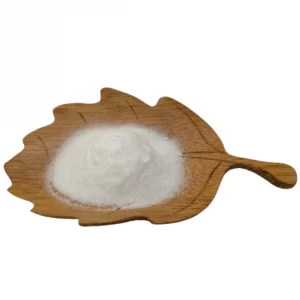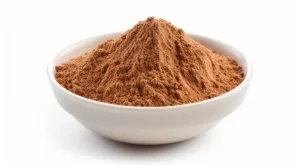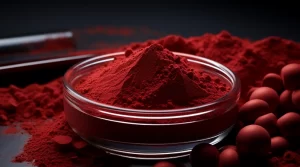스포츠 보충제에서 무수 베타인의 역할과 효과
What is anhydrous betaine what is betaine anhydrous
Anhydrous betaine is a naturally occurring compound found in the body. Betaine is also known and shortened to trimethylglycine or TMG. Structurally, betaine is a small trimethylated amino acid, the amino acid element is glycine, hence the name trimethyl-glycine. As mentioned earlier, it can be found in the body, but it can also be found in sugar beets, which gives betaine its name.
Just to be clear about the name of this ingredient; Anhydrous betaine, trimethylglycine and TMG are identical ingredients. No matter which name they choose to use on the nutrition panel, you’ll get the same ingredients. Sometimes you may see the product used?? Betaine nitrate?? Anhydrous betaine combined with nitrates provides additional benefits.
What does betaine anhydrous do? what does betaine anhydrous do
Betaine plays some roles in the body, but is best known in the sports supplement industry for providing similar benefits to creatine. Don’t go to science; Like creatine, betaine acts as an penetrant in the body. Penetrants are molecules that move in and out of cells to maintain cell volume and fluid balance. Cells that are well hydrated are more resilient to stressors, such as training.
Betaine plays a crucial role in methylation in the body. It does this through two possible mechanisms: either as a methyl donor, reducing homocysteine to the amino acid L-methionine, or by increasing the levels of active folate molecules, which then go on to provide methyl groups and reduce homocysteine levels through a process of methylation.
So why is all this improved methylation important? It’s all about this amino acid called homocysteine. Homocysteine is an amino acid that is produced in the body by protein breakdown as part of the methylation process. High levels of homocysteine are increasingly recognized as an important risk factor for disease and are seen as an indicator of underlying health problems such as cardiovascular disease and Alzheimer’s disease.
Patients who have been diagnosed with methylation problems or high homocysteine levels need to take betaine supplements, as it can directly reduce homocysteine levels through methylation.
From a performance point of view; Betaine supplements have been studied to have a positive effect on muscle strength, muscle endurance and body composition. There were even two studies that looked specifically at these effects; 1 study in men and 1 study in women. In addition, there are many studies on supplementing betaine, which have been shown to improve strength, strength, and muscle endurance.
The women’s study gave participants 2.5 grams of anhydrous betaine per day or a placebo, and the results were:
• Supplementation with betaine resulted in a 250% weight loss
• Supplementation with betaine can reduce body fat by more than 50%
The men’s study gave subjects 2.5 servings of anhydrous betaine (1.25 grams twice daily) or placebo for just 6 weeks, and the results for the betaine group were:
• A 3.2% decrease in body fat compared to a 0.2% increase in the placebo group
• Lean body mass increased by 2.4 kg versus 0.3 kg in the placebo group
• Fat mass decreased by 2.9 kg, while the placebo group gained 0.3 kg
• Increased larger arm size (cross-sectional measurement) compared to placebo group
• Higher training volume than placebo group
The exact mechanism of these changes in body composition and performance has not been determined. Some believe this is an penetrant property of betaine, while others believe it is an increase in the body’s ability to methylate. Personally, we see it as a mixture of the two working together to enable the body to function at a higher level, as well as all aspects of training, recovery and important physical processes.
How much should I take betaine anhydrous benefits?
At least 2.5 grams per day can already produce results of changes in body composition from the above studies. These studies were supplemented with betaine in a 2.5-gram dose taken once daily and a 1.25-gram dose taken twice daily. It’s not clear how you get 2.5g or if there’s any benefit.
It can reduce the level of homocysteine. Doses as low as 1 gram can be effective, with an upper limit of 5+ grams per day. The reduction of homocysteine level was related to the dosage of betaine. The higher the dosage of betaine, the lower the homocysteine level.
When should I take betapower betaine anhydrous?
Betaine does not need to be supplemented at any particular time of day to take advantage of its benefits. The key to supplementing betaine is consistency from day to day, just like creatine. Making sure you consume a daily dose of at least 2.5 grams per day is all you need to worry about when supplementing with betaine.
Usually, you’ll find betaine before a workout, with the goal of providing muscle strength and endurance. You’ll often see it in post-workout formulas designed to support muscle growth and recovery.
How long does it take to work? betaine anhydrous dosage
The specific results we refer to above come from studies in which subjects were supplemented and trained for 6 and 8 weeks. We can say that the body composition results suggest that betaine supplementation followed for 6 weeks in conjunction with a training and nutrition program tailored to these goals. Regarding the effect on homocysteine levels in the body, positive results have been shown in just 4 weeks of continuous betaine supplementation. This depends on the dosage of the supplement and the homocysteine levels of the individual who wants to reduce them.
참조
1. Paavola, K.J. and R.A. Hall, Adhesion G protein-coupled receptors: signaling, pharmacology, and mechanisms of activation. Molecular pharmacology, 2018. 82(5): p. 777-783.
2. Stephenson, J.R., R.H. Purcell, and R.A. Hall, The BAI subfamily of adhesion GPCRs: synaptic regulation and beyond. Trends in pharmacological sciences, 2019. 35(4): p. 208-215.
3. Zeisel, A., et al., Molecular architecture of the mouse nervous system. Cell, 2018. 174(4): p. 999-1014.
4. Duman, J.G., Y.-K. Tu, and K.F. Tolias, Emerging roles of BAI adhesion-GPCRs in synapse development and plasticity. Neural plasticity, 2015.
betaine anhydrous Manufacturer /betaine anhydrous Manufacturers/betaine anhydrous Supplier /betaine anhydrous Suppliers/betaine anhydrous Factory:www.backvita.com
이메일: [email protected]
전화 +86 (029) 8187 2325



